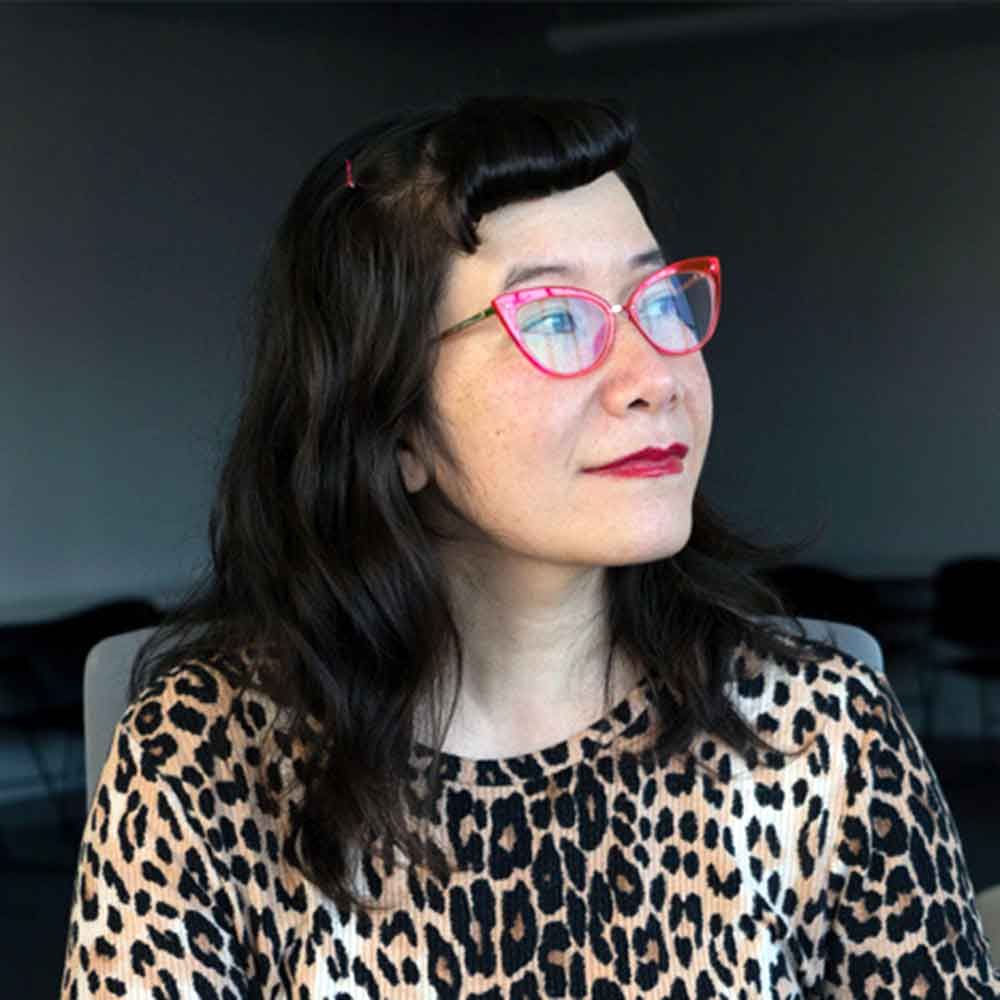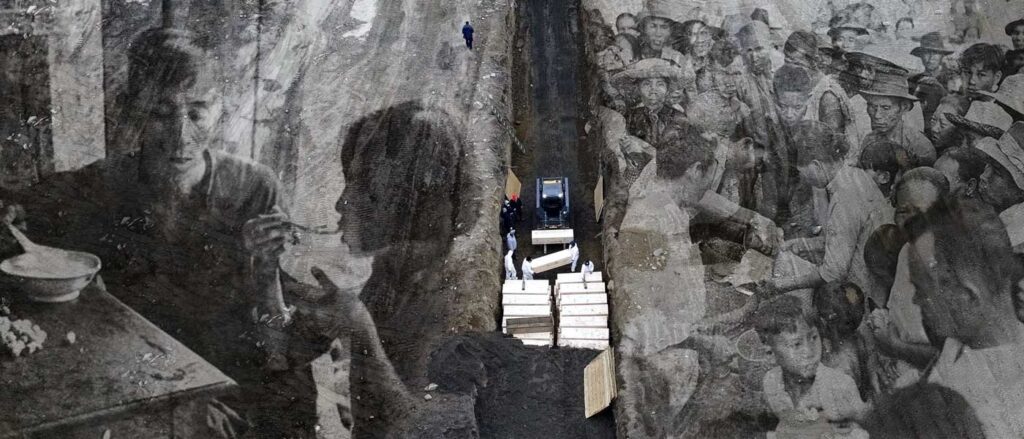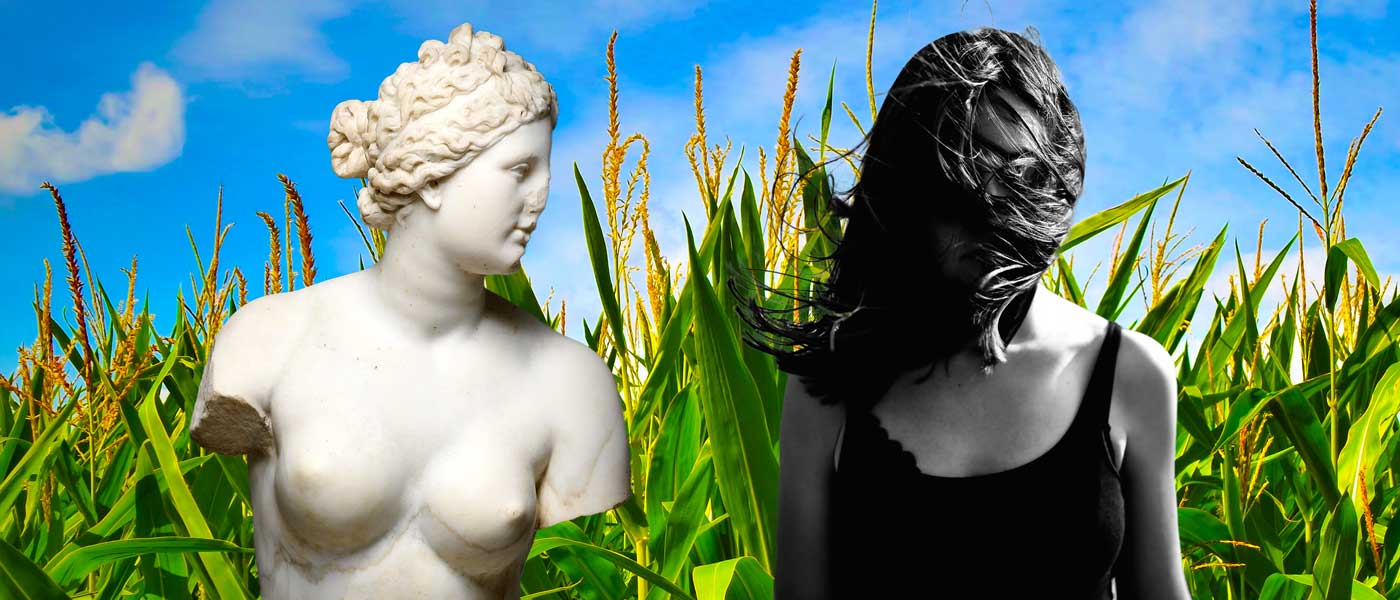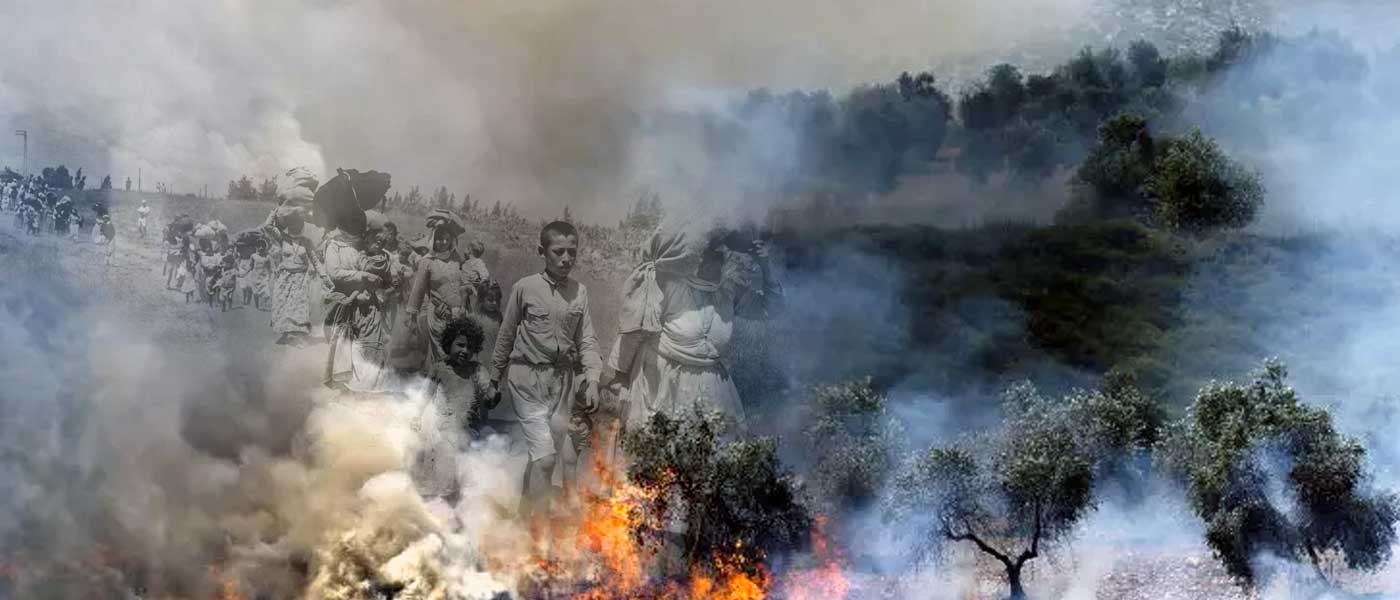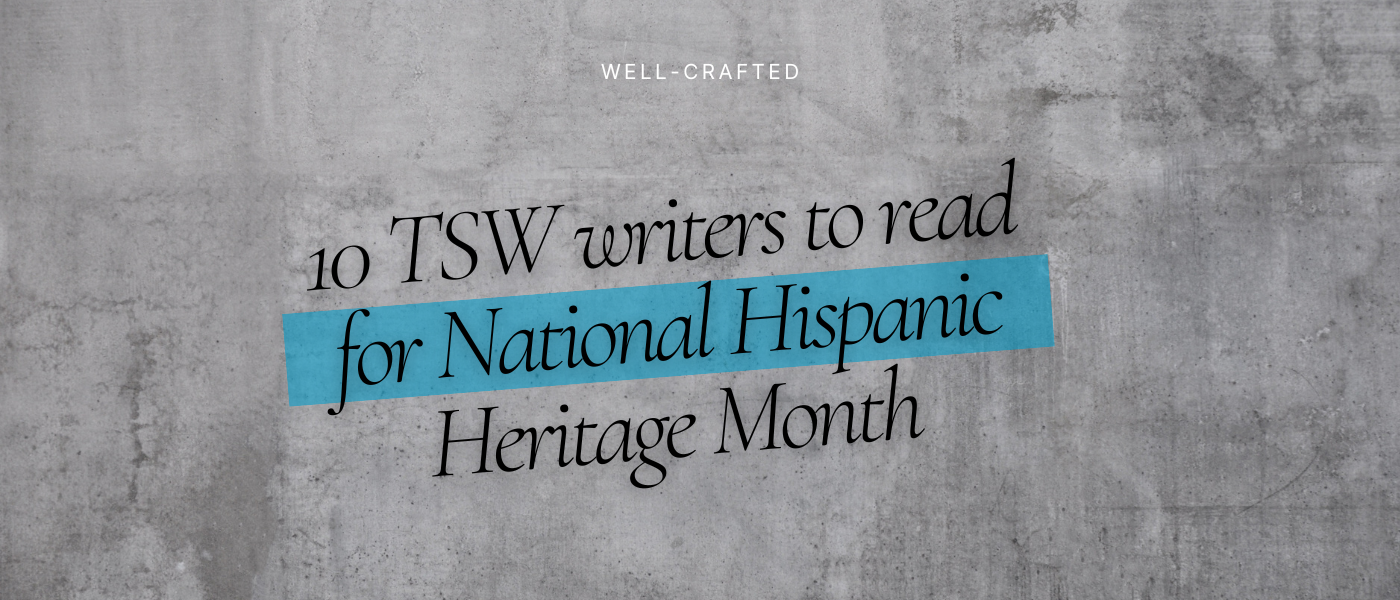It’s Monday morning, April 2020, and I am trying to see if my dad has had a stroke from 800 miles away. My sister sent a video. I cup a hand over my iPhone, but I can barely make out that tiny figure, trapped in the screen, moaning, shaking his head.
It takes twenty years away from home and a global pandemic to realize my dad is vanishing. Growing up in Seattle, I used to stay up till 6 a.m. going to raves, sneak back in the house for a nap, heading back out to spend twelve hours in the queer district for work and school. I figured Dad would always be there to see me the next time. After moving to San Francisco, I visited Dad once a year. We didn’t talk much during the between-times.
I play and replay my sister’s video from her text message. Dad’s speech slurs between languages, not English or Malay or Cantonese or Mandarin. His body slumps forward, one eye closed, chest immobile, while my sister asks him questions and he says something that sounds like “zzzzwawayouyou.” I talk to that tiny screen, say please go to the ER to rule out stroke. I call the doctor while my sister loads a water gun with simple syrup and shoots it into his mouth. Is it a diabetic seizure or a mini-stroke? I check text after text, send my siblings the stroke test. Is his face drooping? Can he raise his arm? Can he talk, does he know what time it is? A few hours later, he answers his phone.
“Dad,” I say, my voice hoarse, almost a whisper. I feel like I’m speaking to a different person, though I can hear his old voice through the static. “Yeah, Dad is okay,” he says. He even jokes: “I almost became a vegetable.”
The last couple times I left we hugged. Maybe even said “love you.”
I want to tell him how much I want to hear all of his stories — especially the ones he’s told and re-told again, how the family almost starved to death during the Japanese occupation, how he won scholarships to migrate to Montreal, Vancouver BC, and the Bay Area in the ‘60s; how he was a “halftime hippie” who spent the money on beer and records every week. How he and Mom met.
I don’t yet know that a month after the first hospitalization, Dad will have another episode. The nurse will tell my sister he needs to go to Skilled Nursing “if you want him to be able to walk again.”
In the midst of all this, I tell myself I will not cry. I am like a machine. A computer operating in recovery mode.
I won’t allow myself to think about being unable to reach Dad in that hospital room. All our unfinished business. For a year after I left home, I left many of his calls unreturned. Maybe I was selfish. I was tired, envious of peers whose parents expressed unconditional love, whereas Dad’s calls were filled with lectures about saving money and putting family first.
I won’t allow myself to think of him surrounded by coughing patients or an unmasked doctor, breathing in the virus. I cannot imagine him being ended by someone refusing to wear a 3 by 5 scrap of fabric across their face, not when he survived a world war that killed 6 to 10 million people across Southeast Asia over seventy years ago.
“Don’t blame others, blame yourself,” Dad used to say while he crunched Cheetos in the living room and swilled Gallo wine fresh from the jug, KING-5 news blaring. He’d often lecture us about “taking responsibility” for our own situations. I took this to mean “don’t ask for help. Do it yourself.” He’d tell us about how he hitchhiked across Canada as a young man, sleeping outside in open fields or by rest stops, or sometimes in the Salvation Army to eat meals with his friend. Or he’d tell us about how he sold fruit as a seven-year-old in the relocation camp. “Later on, I learned it was very valuable,” he’d say of his childhood war camp job, because he would know “when the people doing charity would bring the porridge.” I felt guilty that I never had to learn how to eat fast, like Dad had. He’d slurp his food, store it by the bed or keep it in a separate fridge drawer, as if childhood malnutrition never left him.
During these tellings, Dad would then draw insulin up his orange-tipped syringe, tap out the air bubbles, and jab the needle into his thigh. He’d lay the syringe on a paper plate, the whole kitchen table already so cluttered with medicine and candies and newspapers. He was always in control. I would not see him passing out from hypoglycemia or over-injecting insulin until the pandemic. He was an older parent, 55 when he was diagnosed with diabetes.
I try to imagine Dad as a child, searching for silver scraps of fish that had hopefully not gone bad yet, not knowing when the war would end.
I wonder — while my teenage aunts stole sweet potatoes and my seven-year-old dad sold cut-up mangoes — did they think they would survive?
Dad once told me that during the Japanese occupation, soldiers “dig a big, long grave,” lining up and shooting Chinese-Malaysian citizens.
It’s April 2020. They’re digging mass graves in Hart Island, the Bronx. NYC hospitals are overflowing, and medical staff store hundreds of dead Covid patients in refrigerated trucks on the streets.
We have a reality-show president who chants, “Chinavirus, Chinavirus,” as nurses cover themselves in garbage bags and supply chains break and the same politicians who downplay the pandemic invest in body bags and PPE suppliers. In the first few weeks of the pandemic, I find it hard to breathe and hard to fall asleep. A part of my brain tells me that I won’t wake up if I fall asleep, so I try to delay it as long as possible
Zoom has become my life. I’m on deadline for school and work, but I can’t quiet my mind, I can’t do anything, my whole body going pins and needles. I keep picturing the Dad I remember drinking Diet Coke and shaking one leg after the other. “You see Dad’s legs?” he’d point at his backbent legs yet again. I know the story, how his legs bowed from childhood malnutrition.
Dad was born in British-ruled Malaysia (then Malaya) in 1936. We’re Hakka, the guest people. Our ancestors went through five waves of mass migration, surviving famine and fighting invaders, fleeing into the diaspora. Dad crossed two continents, moved across three countries, to get here to the States.
It’s now May 2020. After Dad’s next hospitalization, my sister will help bring him to Kline Galland Skilled Nursing, where he’ll stay for three weeks until June 10th.
I haven’t made this trip in twenty years and we’re still in lockdown. I tell myself I’ll sleep in the car or drive straight through for fourteen hours, but I keep picturing my car breaking down on that long stretch of highway between San Francisco and Seattle, by Mount Shasta where there is no cell service. I remember once driving my Geo, needle jumping the red zone, steam rising from the hood on the Bay Bridge, no shoulder anywhere, just praying the engine wouldn’t seize up as I clutched the steering wheel and counted my breaths and finally pulled off I-80, turned right onto Frontage road.
The memory still jitters through my body.
The following week, I check text messages from my sister.
This time, Dad’s been hospitalized.
I take a Covid test, wait for it to clear.
I’m Zooming for seven hours straight between work and school. Body numb. By night, I stand in the kitchen, glance at the sink piled high with mugs, a crumb-crusted plate, a couple of Ziploc bags. “I should fix this,” I think to myself. I walk to the sink, but cannot bring myself to turn on the faucet, pick up the sponge, squeeze a glob of detergent onto it. It’s as if someone else made this mess, some other me. I stand by the sink, not washing dishes.
Instead, I glance at the wire shelf, crammed with packaged food. A My Little Pony creature winks at me from the Mattel fruit snacks on the floor, her sherbet blue-pink-purple hair caught mid-toss. I rummage, rip open a packet, smash saccharine gummies into my mouth, wash it down with a shot of tequila. It burns. I tear open a new bag. Eat standing up, waiting for that sugar explosion, because my heart is racing while my 84-year-old diabetic dad is in a skilled nursing facility 800 miles away, re-learning how to walk, held up by nurses in plastic shields and gowns. Nothing and no one is coming to save us. I drop the crinkled wrapper in the trash, walk back to my room and flop onto my bed.
The velour blanket feels good as I curl inside it like a creature in a cocoon. I think about Dad in a hospital bed, left alone by the astronaut suits. Does he see anything, or is there just a blank wall or curtain? My left hand feels anesthetized, clumsy, as I type into the blank phone screen. My body shakes when I get up. I can’t sleep. My hot water with honey has been sitting so long it’s gone cold.
Dad and his family were the lucky ones who survived the Japanese relocation camps. Would he survive this?
My test clears. I rent a car, ready to make the fourteen-hour drive. I’m packing, but I can’t find my suitcase, so I just throw my crumpled clothing into trash bags, pulling on my motorcycle boots, the ones I can’t bear to throw out even though they are so faded and cracked that they’ve started to tear, soles ground down on the edges. I check and recheck the oven, the door, the bathtub faucet, my head buzzing.
I hit the road, heart pounding double-time from caffeine. I turn on the radio, but it’s all static. I can’t get a signal.
Twenty years ago, I returned home to Seattle for Dad’s triple bypass, but he didn’t die, as he said he might. No, he lived.
As I drive, I imagine Dad’s open heart surgery.
He lies back on the hospital table, wearing a flimsy blue gown. The surgeon grapples with her gloves, measures the clear liquid. She pushes the silver needle through his flesh, calls for the nurse, who stays by Dad’s side. His eyelids open and close, nostrils flare, but he doesn’t call for help. Dad doesn’t believe in asking for help.
Once he is asleep, the surgeon takes a blade and cuts 10 inches deep into his chest. She cleaves through muscle, then breastbone, till she reaches his heart. What does his exposed heart look like? It is pulsating under fluorescent light. It is still pumping, swimming in a small ocean of blood. This small muscle. She links it to the bypass machine, scraping a path through the artery. Dad is sewn back together with wire, which closes his breastbone. The machine will live inside of him until he passes.
June 2020. After seven hours on the road, I gulp coffee and keep going, round the mountains by Shasta, crossing the Oregon border, past Ashland, Medford, Grants Pass. I remember my recent dream — Dad climbing on the side of a mountain, rope tied around his waist, rocks tumbling beneath his feet. I remember bolting. Startled awake, my stomach twisted in on itself, as if I alone held the rope. I shake my head, crank the radio louder and hear spurts of “My Sharona” through the static followed by silence.
When I pull off I-5 into a Cottage Grove gas station, it seems like I’ve traveled back in time. Here, no one wears a mask — not the baseball hat-wearing dad carrying his daughter, not the barista at the coffee stand. My cell phone is in the red, charger busted, dead, though I’m scrolling through Airbnb to book a room because I’m exhausted and won’t get there past two in the morning.
I finish booking the room and pop open my tank. As I pump gas, I think about the small man in the White House blaming the “Chinese virus” as maskless crowds shout and protest. I keep seeing Dad among the hate crime victims.
When I look up, there’s a man staring at me. He won’t look away. I tense, ready to kick, my hand forming a fist, ready to scream if he lunges or spits or grabs at me, but instead he turns and gets back into his car.
When it’s time to pay, I kick open the glass door with my boot, enter the mini-mart, and ask the clerk, hidden behind Plexiglass, to add a phone charger. Everything in there smells like bleach.
Then I’m back on the road, driving through winding Oregon mountains, teeth chattering from too much AM/PM coffee. Rain drenches my ancient wipers as they struggle to do their job. I pull up to the Airbnb at 2:30am, run through rain splatter, barricade myself inside the industrial-chic studio with my garbage bags. I climb into bed at 3 a.m. still jittery, gritting my teeth, toying with putting my mask back on to sleep, afraid of coronavirus air particles. I’ll be no use to anyone if I die. I keep Googling and stopping: ”Man who ran over protesters is an admitted leader of the Ku Klux Klan”; “Top Trump official claims there’s no systemic racism”; and “Anti-Asian incidents across U.S. near 1900 over an 8-Week Period.”
After three insomniac hours, I get up. Splash water on my face, barely brush my teeth, load everything into the car. I feel like that quarantine Gremlin meme — by Day 30, the once-cute critter is now a lump of matted fur, its googly eyes half-scratched off.
On the road, everything is a blur of trees — evergreens, firs, spatters of rain. I swig more coffee. Gun the gas. The last time I was home a year ago, Dad told me a tree fell on the house and blocked the walkway. He was 83, hacking away with a handsaw till he cleared a path. Cut-up tree stumps still line our house.
It’s June 2020. It’s been two months since I saw Dad as a tiny figure crying and moaning without language, a monstrous version of the parent I once knew, trapped in a video screen. Now, I’m finally here to see Dad. Some of the travel restrictions have been lifted.
I turn off the highway and make my way down Seward Ave to Kline Galland Skilled Nursing. Everything looks so serene at the park nearby — the lake, all the evergreens, that piney scent, everything lush from rain. I pull into the parking lot. I imagine Dad inside that clinical room, his body so frail I don’t recognize him, barely covered in a papery hospital gown. “Don’t turn off the gas,” I think, as though I can run away, but it’s too late to turn back.
I sit in the car, breathing and gripping the steering wheel. Will myself to move my legs, to open the door, to stand, to leave the sanctuary of my car for this facility.
I walk through the sliding glass doors. The receptionist scans my forehead for fever as she runs through the coronavirus checklist. “No, no, no,” I repeat in their Covid questionnaire, a memory of cotton swabs scraping mucus from the back of my nostrils. A social worker leads me down the hall, the floor so slick that it seems unreal, a shiny other world. Down the hall, a nurse takes off her blue mask, smiles, and steps into the elevator. I insist on taking a different elevator. “Why is she mask-less?” The social worker I’m with explains that the nurse is on break and won’t be near patients, but I shiver thinking about the eight nursing home patients who died a few blocks from my parents’ house, along with the forty-three senior patients who died at Life Care Center just outside of Seattle last week. Shit.
The social worker leads me through another empty hall, to an open door, the room just curtained off. She knocks on the door frame.
I can’t see my dad, only hear the TV blaring from another room. Lights buzz overhead. A faint laugh track, then a commercial break. The room reeks of bleach and antibacterial soap.
We walk in, but Dad just stares straight ahead. Did he have a stroke? His face looks blank, eyebrows raised in that slightly quizzical expression we share, somehow. He doesn’t look much thinner, as I was afraid he’d be. “Mr. Chan,” she says, and he blinks, but says nothing to the two of us. Is he on medication? I don’t know if I should hug him, if I will breathe on him. I keep thinking I could have a false negative, the virus hiding inside my body.
Dad still looks the same, except no baseball cap, just the same ‘80s stonewashed jeans and a sweater this time. Lit by fluorescence, we move in slow motion as the social worker shows me how to help transfer him to and from the wheelchair. I wipe everything down with Clorox — the grab bars, the door knobs, all the metal gleaming. When the social worker leaves, a nursing assistant helps wheel him down the hall toward the exit. She is so kind to him, laughing and joking, hugging his shoulder, though he doesn’t react. Maybe he gives her a faint smile. I am a bad daughter beside her, stiff, awkward, not even knowing when to hug.
After we’ve walked to the car, after I’ve helped him into his seat, after he’s strapped safely inside, I turn on the engine and look at him. Is he still the same Dad?
“They didn’t give me any freedom in there,” he says finally, an edge or a plea at the end of his words.
This is the first thing he’s said to me. He barely spoke inside Kline Galland. He was so polite, it was like looking at a stranger.
“I had to buzz someone to go take a walk outside.”
I nod, not taking my eyes off the road.
I hope that he’s the same Dad who camped out under the stars in a sleeping bag, no tent in sight when we drove from Seattle to San Francisco over twenty years ago.
“They didn’t give me any freedom” gives me hope he’s back to his old self. But he’s more frail, needs my hand on his arm to steady himself while walking.
I don’t yet know that this stay at Kline Galland will be the beginning of a series of other medical incidents. I don’t yet know that I’ll be present for the next one, grasping Dad’s shoulder while I dial 911, yelling out into the empty space for help.
For now, I take the slow route home, gliding along Seward Park, passing by endless stretches of grass and water and people running, jogging, walking their dogs. As I make it to I-5 heading toward home, Dad falls asleep, baseball-hatted head slumping forward, sun-dappled hands curled in his lap. At least he looks peaceful.
